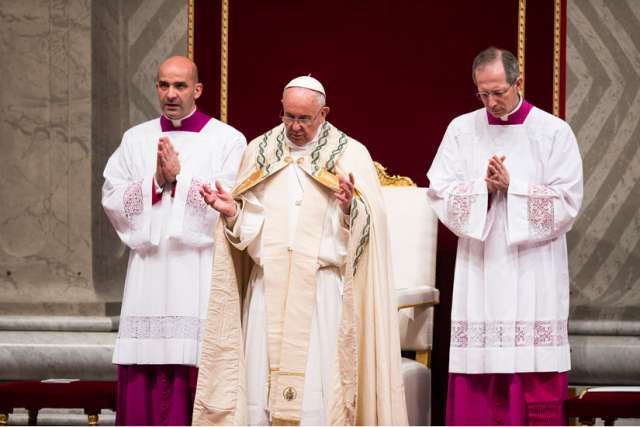Pope Francis believes mercy forms the foundation of Church life and must be professed daily by all who call themselves Christians. The Church’s “very credibility” is revealed in how it shows mercy, he says. Yet he fears society is forgetting how to be merciful.
That is why Francis issued a papal bull on April 11 that officially proclaims an extraordinary Holy Year of Mercy. He wants the Church to reject these often-merciless times and launch an era of mercy, an era that propels mankind from indifference to compassion.
Has there ever been a time when mercy was more in need but less in evidence? Consumer culture promotes wealth, ambition and individualism ahead of the common good. Instant communication encourages real-time verdicts and vilifications. A predatory corporate mentality demands profit ahead of compassion. The militarized planet advances war and degrades the innocent. Society is quick to judge but slow to forgive.
In all areas of daily life mercy’s deserved place of honour is undermined by the ugly twins of pride and indifference. That is why Francis has proclaimed a Holy Year that calls people to bestow acts of mercy on “every man and every woman of our age.”
Francis, often called the Pope of Mercy, has put mercy at the core of his papacy. So it is unsurprising that he has conceived a year for the Church, like a mother, to reach out to comfort its suffering children. Christians have no other choice, he says, than to follow the example of a forgiving and loving Lord and “to care for those who are hurting.”
“I think — and I say it with humility — that this is the Lord’s most powerful message: mercy,” Francis said earlier this year.
And thus his call for a Holy Year of Mercy, an extraordinary Jubilee, to run from Dec. 8 until the following Nov. 20.
The tradition of Holy Years dates back 700 years in the Church. Ordinary Holy Years are held every 25 years; extraordinary ones are proclaimed by a pope to mark exceptional events. These are years of forgiveness and reconciliation intended to foster solidarity, hope, justice, faith and peace — the touchstones of the Francis papacy and, now, his extraordinary Year of Mercy.
Mercy is joyful and it is optimistic. It heralds the future by forgiving the past. It is generous with aid and comfort without judging why they are needed. It is lavish with kindness with no expectation of earthly reward. It is joyful and faithful as it asks us to be as merciful to others as God is to us.
People of mercy is what Easter calls us to be and what Francis is helping us to become.


